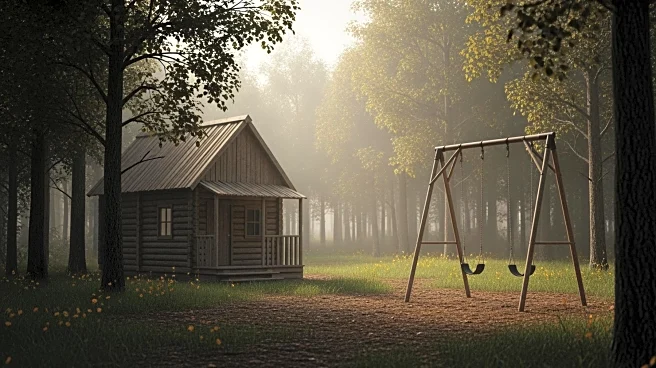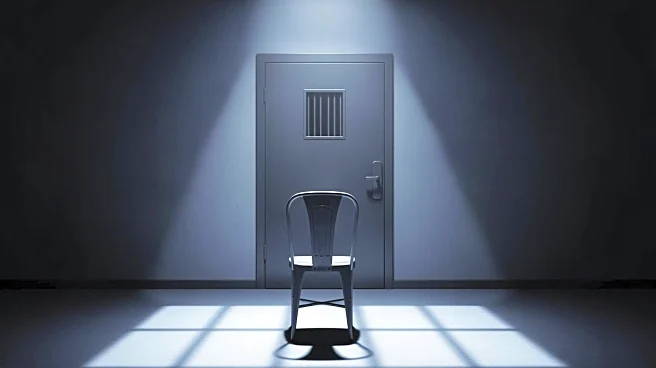What's Happening?
An Italian court has intervened in the living situation of a family residing off-grid in a remote cabin in Abruzzo, Italy. The family, consisting of Nathan Trevallion, a British former chef, Catherine Birmingham, an Australian life coach, and their three
children, faced legal action after concerns were raised about their living conditions. The court ordered the removal of the children, aged eight and six-year-old twins, to a church-run care facility, citing inadequate housing and lack of social interaction. The family had been living without running water, using solar panels for electricity, and relying on an outdoor composting toilet. The situation came to light after the family was hospitalized for mushroom poisoning, prompting visits from social services and law enforcement. Despite the parents' claims of a healthy and happy lifestyle, the court deemed the living conditions a violation of the children's rights.
Why It's Important?
This case highlights the tension between alternative lifestyles and legal standards for child welfare. The court's decision underscores the importance of ensuring children's rights to education, healthcare, and social interaction, which are considered essential for their development. The intervention has sparked debate in Italy, with political figures like Prime Minister Giorgia Meloni and Deputy Matteo Salvini criticizing the decision as an overreach into private family life. The case raises questions about the balance between parental autonomy and state responsibility in safeguarding children's welfare. It also reflects broader societal discussions on the acceptability of non-traditional living arrangements and the role of government in regulating them.
What's Next?
The family's lawyer has announced plans to appeal the court's decision, seeking to reunite the family. Political leaders have expressed interest in the case, with Salvini planning a visit to the family's home. The appeal process will likely involve further scrutiny of the family's living conditions and their ability to meet legal standards for child welfare. The outcome could set a precedent for similar cases involving off-grid living and parental rights in Italy. Public opinion and political pressure may influence the legal proceedings, as the case has garnered significant attention and support through an online petition.
Beyond the Headlines
The case raises ethical questions about the rights of parents to choose unconventional lifestyles and the extent to which the state can intervene. It also touches on cultural attitudes towards alternative living arrangements and the perceived risks associated with them. The family's situation highlights the challenges of balancing environmental sustainability with legal requirements for habitation. The broader implications may include discussions on the need for legal frameworks that accommodate diverse lifestyles while ensuring child welfare. This case could influence future policies on off-grid living and parental rights in Italy and beyond.















